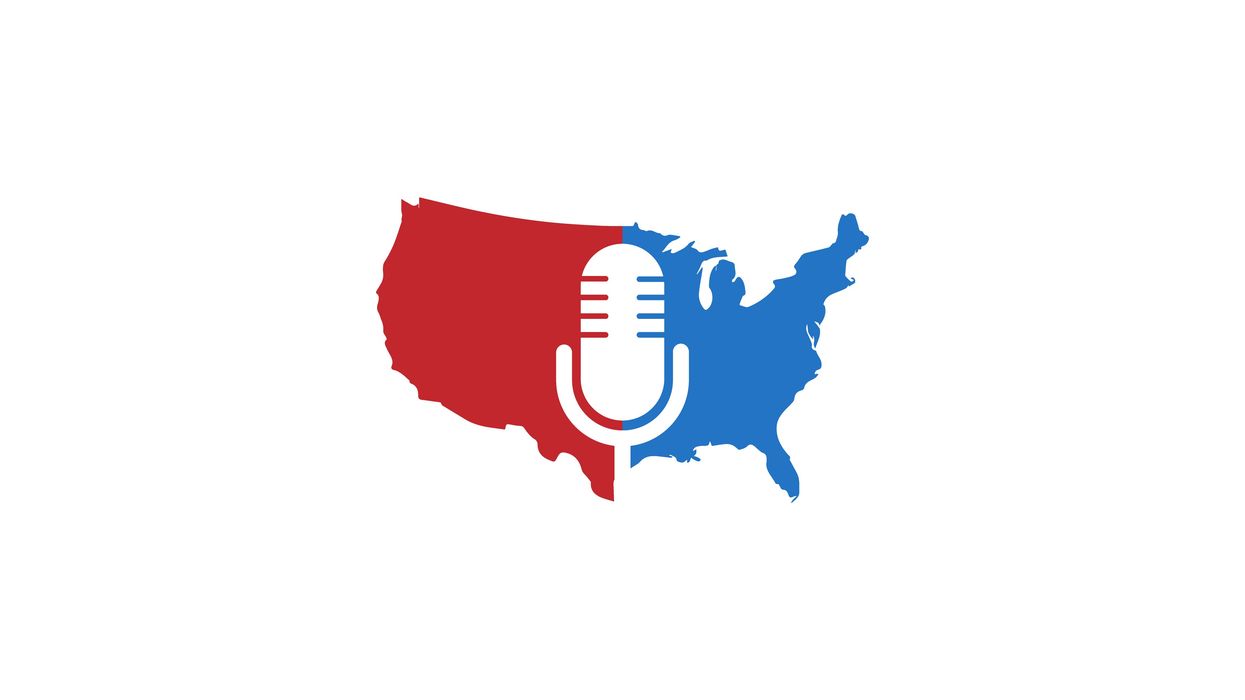Spinelle is the founder of The Democracy Group podcast network and the communications lead for the McCourtney Institute for Democracy at Penn State.
According to Edison Research, nearly half of Gen Z are monthly podcast listeners. But their voices are largely absent from podcasts about democracy, civic engagement and civil discourse. The Democracy Group’s podcast fellowship, which recently completed its third cohort, aims to change that.
This spring, five high school and college students from across the country were mentored by the hosts and producers in the network, along with Network Manager Brandon Stover, to create their own podcasts. Thanks to support from the Bridge Alliance Education Fund (publisher of The Fulcrum), we were able to purchase recording equipment for each fellow.
The shows the fellows created represent their diverse backgrounds and interests, and each is a foundation that can be sustained beyond the initial episode. I hope you enjoy listening to these episodes as much as I did.
‘Democracy Beyond Borders,’ hosted by Aprile Kim
Drawing from Kim’s experience of growing up and living in Guam, “Democracy Beyond Borders” seeks to explore the complexities of democracy in the modern world and examine the international impact of American policies. The podcast will take listeners through America's current affairs and political ideas to examine democracy. In the first episode, we hear about the contradictory behaviors in American politics and the intricacies of American democracy.
Kim is a rising fourth-year student at the University of Michigan, Ann Arbor and is pursuing a double major in political science and philosophy and a double minor in Japanese and international studies, with a thematic focus on international security, norms, and cooperation.
‘Jonesin’ Around,’ hosted by Virginia Jones
Through “Jonesin' Around,” Jones will explore political topics and engage in meaningful discussions that bring people together from all walks of life and across the political spectrum. Using a light and accessible tone, “Jonesin' Around” wants to find the common ground between opposing political ideas and change conversation manners one at a time. Each episode will tackle a national issue and the first two weeks feature discussions with leading academics who examine all sides of the political topic.
Jones is a student at the University of South Carolina majoring in public relations with a minor in political science. A few years ago, she discovered her interest in politics, particularly in political media, and decided to incorporate this passion into her education.
‘Make America Great for Everyone,’ hosted by Kayla Anderson
“Make America Great For Everyone” will take a deep dive into the American justice system through conversations with police officers, ex-prisoners and people who experienced injustice firsthand. Anderson will talk about all of the different issues currently plaguing the American system that is supposed to be just, starting with a heartfelt conversation with her brother in the first episode.
Anderson is a rising fourth-year political science major on the pre-law track at Ohio State. She currently serves as the vice president of the Undergraduate Black Law Student Association, treasurer of the Minority Collegiate Outreach and Support Team, and DEI committee co-chair for her Law and Society Scholars Program.
‘Laws Across Borders,’ hosted by Simran Gupta
Utilizing Gupta’s network of friends from all over the world, “Laws Across Borders” will explore educational topics like the school systems, technology or academic pressure and how they vary from country to country. The first episode will focus on school environments, touching on both the technological and academic sides.
Gupta is a rising high school senior in Georgia. She believes that life is all about learning new things, but interpreting information in a way that’s meaningful is difficult, especially in this day and age where news is readily available and shared whether it’s accurate or not.
‘Uneven Grounds,’ hosted by Maggie LeBeau
Using a solutions-based approach, “Uneven Grounds” will discuss inequalities in geography and navigate geographic social issues in each episode. LeBeau wants to bring attention to the many problems people across America encounter daily because of where they live, with a solution to each of the issues. The first episode explores election inequality and how they are related to geography, with gerrymandering being a key issue. LeBeau recently graduated from Glenbard East High School in Lombard, Ill., where she served as editor-in-chief of the school’s newspaper, the Echo. Outside of school, she is a part of the Media Wise Teen Fact-Checking Network and PBS Student Reporting Labs.
The next podcast fellowship cohort will begin in the fall. For more information, visit democracygroup.org/fellowship or subscribe to our newsletter to receive information when fellowship applications open.




















